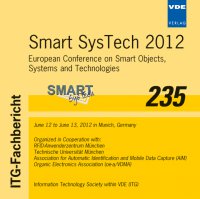Improving Energy Efficiency for Small-Scale Solar Energy Harvesting
Konferenz: Smart SysTech 2012 - European Conference on Smart Objects, Systems and Technologies
12.06.2012 - 13.06.2012 in Osnabrück, Deutschland
Tagungsband: Smart SysTech 2012
Seiten: 9Sprache: EnglischTyp: PDF
Persönliche VDE-Mitglieder erhalten auf diesen Artikel 10% Rabatt
Autoren:
Schmid, Johannes; Gaedeke, Tobias; Scheibe, Tillmann; Stork, Wilhelm (Institute for Information Processing Technologies (ITIV), Karlsruhe Institute of Technology (KIT), Germany)
Inhalt:
Using a solar energy harvesting device in its optimal working point allows to maximize the harvested energy and to minimize the required number of solar cells for a given application. For larger photovoltaic installations, a corresponding maximum power point tracking (MPPT) method is thus standard. However, in small-scale harvesting, the internal consumption of the required circuitry can often eat up the harvested energy surplus. Alternatively the operation at more or less constant voltage, realized by directly coupling the solar cells to a fixed voltage, e. g. of a rechargeable battery, can be used. In this paper we present a concept to switch between MPPT and direct coupling operation to maximize the harvester’s output. Our approach allows to increase the energy efficiency by making use of MPPT whenever it results in a higher energy output and avoiding MPPT overhead for lower irradiations. We outline the concept, motivate the approach and show a prototype implementation of a solar-powered wireless sensor node that incorporates our method. This prototype is experimentally evaluated to determine the achievable increase in harvested energy. Based on this evaluation, we assess the possible increase in energy efficiency for varying application areas by means of a simulation. We conclude that switching between MPPT and direct coupling can result in an increase of overall efficiency of several percent depending on the considered application.


